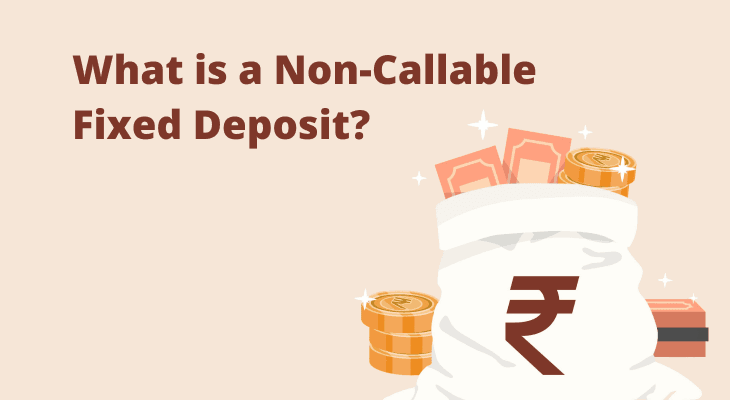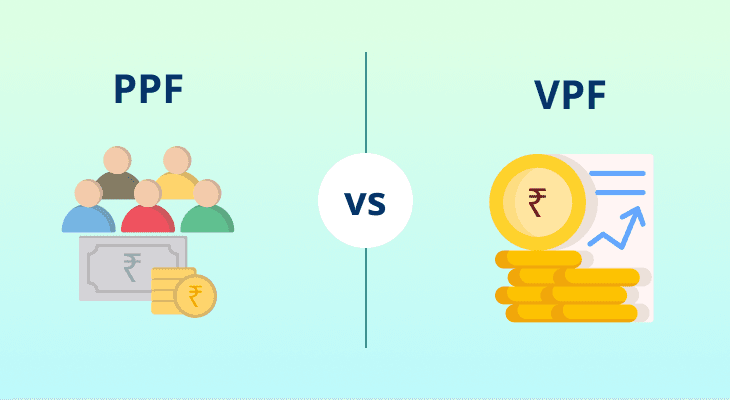
Is Equity the Better Investment Over FD, Gold, and Real Estate?
Investing is not a one-size-fits-all approach. Every individual has different financial goals, risk appetites, and time horizons. While equity investments are often considered ideal for long-term wealth creation, other asset classes like fixed deposits (FDs), gold, and real estate continue to attract Indian investors.
So, the key question is: Is equity truly the best investment option in 2025? This article will help you evaluate equity vs gold investment, and compare equity with other traditional avenues.
Understanding Equity, FD, Gold, and Real Estate Investments
Each of these asset classes, equity, fixed deposits, gold, and real estate, serve different financial needs. Before making any comparisons, it's important to understand what each of these investment options entails.
Equity Investments
Equity investing involves purchasing shares of companies, giving you partial ownership in those businesses. When a company performs well, its share price may rise, and you can earn returns through price appreciation. In some cases, companies also pay out a portion of their profits as dividends.
Equity investments are typically accessed through stock markets and require either direct involvement (buying stocks) or indirect participation through mutual funds, ETFs, or portfolio managers.
Pros:
- High Growth Potential: Over long durations, equities have historically outperformed most asset classes.
- Liquidity: Stocks and exchange traded funds can be easily bought and sold through trading accounts.
- Transparency & Regulation: SEBI regulates listed companies and stock exchanges, providing investor protection.
Cons:
- Market Volatility: Stock prices fluctuate daily based on market conditions and company performance.
- Learning Curve: Successful investing requires understanding financial metrics and company fundamentals.
- No Guaranteed Returns: Unlike FDs, equity returns are market-linked and not assured.
Fixed Deposits (FDs)
Fixed deposits are simple financial instruments offered by banks and NBFCs. You deposit a lump sum for a pre-defined period and earn interest at a fixed rate. FDs are a popular choice among conservative investors.
Pros:
- Capital Safety: Your investment is safe, especially in bank FDs insured up to ₹5 lakh by DICGC.
- Predictable Returns: The interest rate is fixed and not affected by market fluctuations.
- Easy to Understand: There is no complexity; the process is straightforward for all age groups.
Cons:
- Low Real Returns: The interest rate often barely beats inflation, reducing your real wealth over time.
- Taxable Income: FD interest is added to your income and taxed accordingly.
- Penalties on Withdrawal: Premature withdrawal can lead to reduced interest or charges.
Gold
Gold has long been considered a store of value and a cultural favourite in India. Investors can buy physical gold (jewellery, coins), paper gold (sovereign gold bonds), or digital gold (ETFs and mutual funds).
Pros:
- Inflation Hedge: Gold tends to retain value during times of inflation or currency depreciation.
- High Liquidity: Especially true for physical gold and ETFs, which can be easily sold.
- Portfolio Diversification: Often moves inversely to equities, making it a good diversifier.
Cons:
- No Income Generation: Unlike equity or real estate, gold doesn't produce income.
- Storage Costs/Risks: Physical gold requires safe storage and comes with the risk of theft.
- Volatility in Short Term: Prices fluctuate with global cues, geopolitical tensions, and central bank policies.
Real Estate
Investing in real estate involves purchasing residential or commercial properties, either for capital appreciation or rental income. It's a tangible and physical asset class that holds long-term appeal.
Pros:
- Steady Income Potential: Rental income can act as a passive cash flow.
- Capital Appreciation: Property values tend to rise over the long term in urban or high-demand areas.
- Tangible Asset: Many investors prefer physical assets they can see and use.
Cons:
- High Entry Barrier: Real estate requires significant capital to start investing.
- Low Liquidity: Selling a property takes time and is subject to market conditions.
- High Maintenance & Legal Hassles: Includes property taxes, repairs, and paperwork.
Types of Equity Investments Available in India
Equity isn't limited to directly buying shares of companies. Depending on your goals, experience, and risk appetite, you can choose from multiple investment routes in equity markets.
1. Direct Equity (Stocks)
This involves purchasing shares of companies directly on the stock exchange. You can invest in large-cap, mid-cap, or small-cap companies based on your outlook and risk profile. This method requires active monitoring, research, and understanding of market trends.
Best suited for: Experienced investors who can analyse financial statements, track news, and make informed decisions.
2. Equity Mutual Funds
These are professionally managed funds that pool money from multiple investors to invest in a diversified basket of stocks. They help mitigate risks by spreading investments across sectors and market caps.
Types of Equity Mutual Funds:
- Large-Cap Funds: Invest in well-established companies with stable earnings. Suitable for low to moderate risk-takers.
- Mid-Cap Funds: Target medium-sized companies with growth potential. Slightly riskier but offer higher returns.
- Small-Cap Funds: Invest in emerging companies. Volatile but can deliver exceptional returns if timed well.
- Multi-Cap Funds: Spread across all market caps to balance risk and reward.
- Sectoral/Thematic Funds: Focus on specific sectors like banking, IT, or pharma. Risky due to concentrated exposure.
Best suited for: Beginners and those who prefer professional management of funds.
3. Exchange-Traded Funds (ETFs)
ETFs are passive investment products that track indices like Nifty 50, Sensex, or sectoral benchmarks. They are listed on stock exchanges and offer the combined benefit of mutual funds and stock trading.
Best suited for: Cost-conscious investors looking for simple, index-based exposure to equity markets.
4. Equity-Linked Savings Schemes (ELSS)
ELSS are mutual funds with tax-saving benefits under Section 80C. They have a 3-year lock-in and primarily invest in equities. They are known for combining wealth creation and tax efficiency.
Best suited for: Salaried individuals or those seeking to save tax while participating in the equity markets.
5. PMS and AIFs
Portfolio Management Services (PMS) and Alternative Investment Funds (AIFs) are premium options tailored for high-net-worth individuals. They offer curated equity portfolios and alternative strategies for sophisticated investors.
Best suited for: HNIs looking for active management, custom strategies, and high capital deployment.
Comparison: Equity vs Fixed Deposit, Gold, and Real Estate
Let’s now compare these asset classes across several important parameters to help you make an informed decision.
1. Risk and Return Potential
- Equity: High risk, high return potential
- FD: Low risk, fixed low returns
- Gold: Moderate risk, medium return
- Real Estate: Moderate to high risk, depends on market cycles
2. Liquidity
- Equity: Highly liquid
- FD: Moderate liquidity with penalties
- Gold: High liquidity (esp. physical and ETFs)
- Real Estate: Low liquidity
3. Inflation Beating
- Equity: Strong inflation hedge in the long term
- FD: Struggles to beat inflation
- Gold: Good inflation hedge
- Real Estate: Varies by location and demand
4. Taxation
- Equity: Tax benefits (12.5%) and exemptions (up to ₹1.25 lakh) on long-term capital gains
- FD: Fully taxable interest
- Gold: LTCG tax (20%) after 2 years
- Real Estate: LTCG (20%) with indexation after 2 years
5. Investment Accessibility
- Equity: Can start with low amounts
- FD: Low entry barrier
- Gold: Moderate (except physical gold)
- Real Estate: High entry cost
Summary Table
Parameter | Equity | Fixed Deposit | Gold | Real Estate |
Risk | Medium-High | Low | Medium | Medium-High |
Return Potential | High | Low | Medium | Medium |
Liquidity | High | Medium | High | Low |
Inflation Protection | Strong | Weak | Moderate | Variable |
Entry Cost | Low | Low | Moderate | High |
Tax Efficiency | Moderate-High | Low | Moderate | Moderate |
Why Equity Stands Out Among All Investment Options
While each investment type has its merits, equity offers a unique combination of liquidity, growth, and accessibility that makes it a powerful tool for long-term wealth creation. In a country like India, with a young population and rising income levels, equity markets present an opportunity to participate in the country’s economic growth.
In 2025, macroeconomic indicators suggest that India's GDP and corporate earnings are on a growth trajectory. Equities allow investors to benefit directly from this trend. Furthermore, technological innovations and digitisation of financial services have made equity investing easier and more transparent than ever before.
The ability to start small, diversify through mutual funds, and scale investments as you grow financially makes equity especially appealing to retail investors. Additionally, regulatory bodies like SEBI ensure a relatively well-regulated market.
However, it’s essential to approach equity with realistic expectations. It is not a shortcut to riches but a disciplined, long-term journey that rewards patience and strategy.
Conclusion
Equity may not be a universal solution for all financial needs, but it undoubtedly plays a critical role in building a diversified and growth-oriented portfolio. Unlike FDs, gold, or real estate, equity provides higher growth potential, especially over the long term.
That said, smart investing isn’t about choosing one over the other but understanding how different assets complement each other. Your age, goals, income, and risk tolerance should guide your asset allocation. If you're aiming for wealth creation and are willing to handle short-term fluctuations, equities can be the core of your investment strategy.
Remember, diversification remains the golden rule. Even when equity shows promise, a well-balanced portfolio often yields the best outcomes.
FAQ
Is equity a better long-term option than fixed deposits in 2025?
Yes, equity generally offers better long-term growth potential than fixed deposits, which provide fixed but lower returns. While FDs prioritise capital safety, equity can help you grow wealth over time, especially if you have a long investment horizon and risk tolerance.
Can equity outperform gold and real estate in 2025?
Yes, equity has the potential to outperform both gold and real estate, especially with India’s growing economy and rising corporate earnings. However, returns depend on market trends, and past performance doesn't guarantee future results. A long-term view is essential.
Which investment is best for beating inflation: equity, FD, gold, or real estate?
Equity is generally the best inflation-beating option over the long run. FDs often offer returns below inflation, while gold and real estate can protect value but may not always generate real wealth after taxes and costs.
Is equity a good option for beginners?
Yes, equity can be great for beginners if approached wisely. Start with mutual funds or ELSS for professional management and diversification. Avoid direct stock picking until you gain experience. Use SIPs to manage risk and build discipline.
What makes equity more liquid than real estate or gold?
Equity investments can be bought or sold instantly through stock exchanges, offering high liquidity. Real estate takes time to sell, and gold, especially physical, requires a buyer and may involve purity checks. Equity allows quicker access to cash when needed.
Does equity offer tax benefits like other assets?
Yes, long-term capital gains on equity (held over 1 year) are taxed at 10% beyond ₹1 lakh. ELSS funds also offer Section 80C deductions. FDs and real estate have less favourable tax treatment, and gold's tax benefits depend on the holding period.
How much should I invest in equity vs other assets?
It depends on your age, goals, and risk appetite. A common rule is to subtract your age from 100 to decide your equity allocation. Younger investors can afford higher equity exposure, while older individuals may prefer FDs or real estate.
Is equity suitable for short-term financial goals?
No, equity is best suited for long-term goals (5 years or more). For short-term needs, market volatility can erode capital. FDs or liquid funds are better choices for preserving capital and ensuring stability over shorter timeframes.
Can I invest in equity with a small amount of money?
Yes, equity is very accessible. You can start investing in mutual funds or stocks with as little as ₹500 via SIPs. Unlike real estate or gold, equity doesn’t require large capital, making it ideal for new and small investors.
Should I only invest in equity in 2025?
Not necessarily. While equity offers strong growth potential, it's important to diversify. Combining equity with safer assets like FDs or gold can reduce risk and ensure balanced returns. The right mix depends on your financial goals and comfort with risk.


